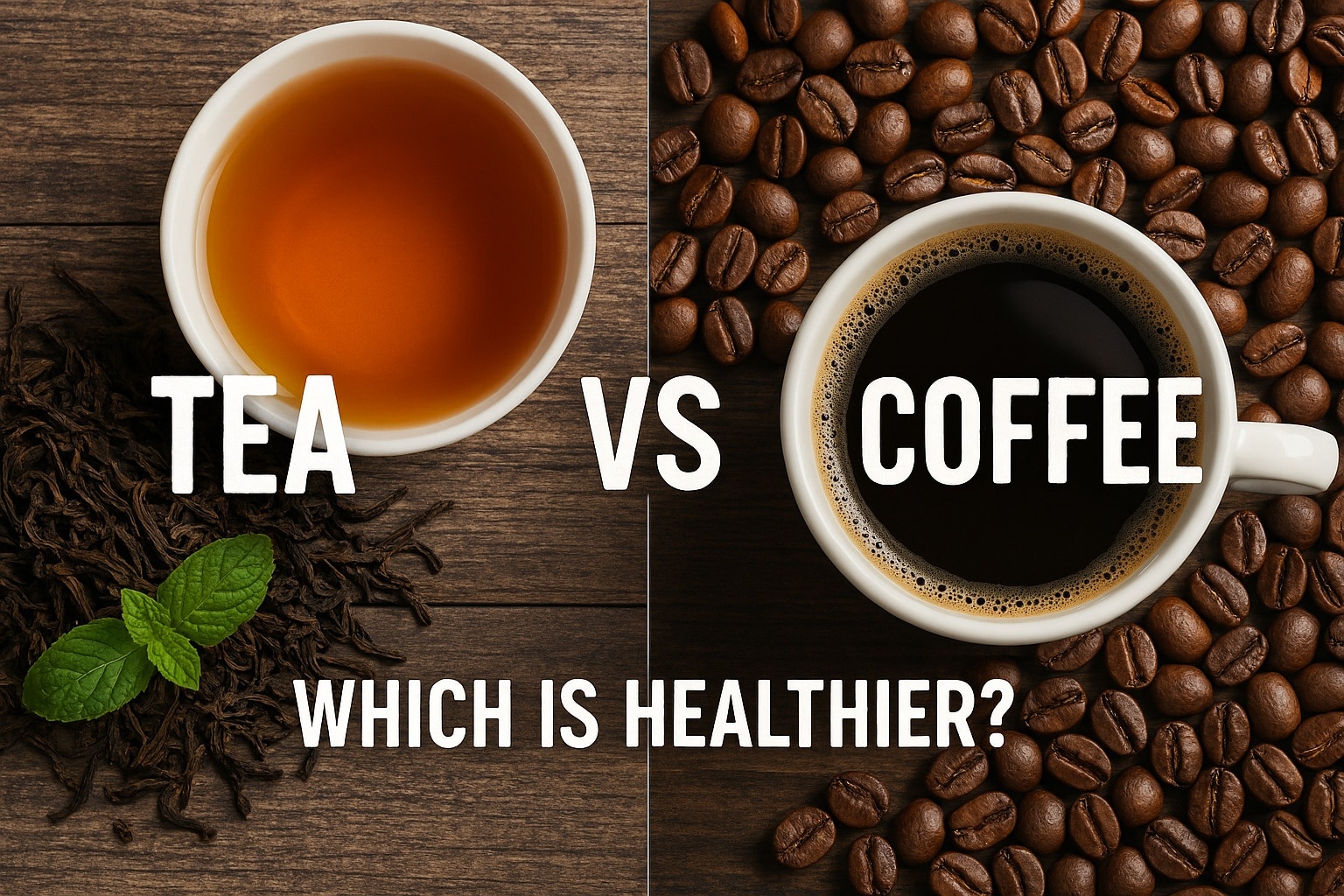For most of us, mornings begin only after that first sip - whether it's a comforting cup of tea or a bold mug of coffee. Both drinks are deeply woven into our daily rituals, social gatherings, and even work breaks. But when it comes to health, the debate often brews: which is truly better for you - tea or coffee? Some claim coffee fuels productivity and longevity, while others swear by the soothing and detoxifying benefits of tea. Both have centuries of tradition behind them, and both have now been widely studied by modern science. Let's explore what science says about the two beloved beverages.
Also Read: 9 Best Tea Recipes: Get Creative With Chai | Popular Tea Recipes
Tea Or Coffee? Which Is A Healthier Option:
1. Caffeine: The Energy Kick
Both tea and coffee owe their energising powers to caffeine, but in different amounts.
A typical cup of coffee contains around 90-100 mg of caffeine, while tea has about 30-50 mg. This means coffee gives a stronger and quicker energy boost, which can improve alertness and focus.
However, that same jolt can also cause jitters or a racing heart if consumed in excess. Tea, on the other hand, offers a gentler lift - thanks to the amino acid L-theanine, which promotes calm alertness.
Verdict: If you need a powerful kickstart, coffee wins. For steady focus and calm energy, tea takes the crown.

Coffee gives a stronger energy kick.
Antioxidants: Both Are Packed with Goodness
Both beverages are rich in antioxidants - compounds that fight inflammation and protect your cells from damage.
Tea, especially green and white varieties, contains catechins like EGCG (epigallocatechin gallate), known for their potential to reduce the risk of heart disease and support brain health. A study in the European Journal of Preventive Cardiology found that people who drank tea three or more times a week had a lower risk of cardiovascular disease and lived longer compared to non-tea drinkers.
Coffee isn't far behind. It's one of the largest sources of antioxidants in the Western diet, containing polyphenols that can protect against chronic diseases like diabetes and certain cancers. According to research in Annals of Internal Medicine, moderate coffee consumption - around 3 to 4 cups per day - was linked to a lower risk of premature death from all causes.
Verdict: It's a tie - both drinks deliver a healthy dose of antioxidants in their own ways.
3. Heart and Metabolic Health
Studies suggest both tea and coffee may support heart health when consumed in moderation.
Green tea may help lower LDL ("bad") cholesterol levels, while coffee drinkers have been found to have a lower risk of type 2 diabetes.
A 2021 study published in PLOS Medicine observed that people who drank 2-3 cups of coffee or tea daily had a 10-15% lower risk of heart disease and stroke compared to non-drinkers. Researchers believe this is due to the combined effects of antioxidants, polyphenols, and caffeine improving blood vessel function and metabolism.
Verdict: Both can be heart-healthy allies - as long as you skip the sugar and cream.
3. Digestive and Mental Health
Tea, particularly herbal and green varieties, is easier on the stomach and can aid digestion. Herbal teas like chamomile, peppermint, and ginger are known to soothe bloating and nausea.
Coffee, while stimulating digestion, can sometimes irritate the stomach or cause acidity due to its higher caffeine content and natural acids. But when it comes to mental health, moderate coffee intake has been linked with a lower risk of depression and neurodegenerative diseases like Alzheimer's and Parkinson's.
Verdict: For gut comfort, tea wins. For brain protection, coffee has a slight edge.
Also Read: Tea Versus Coffee: Which Is Kinder To Your Smile?

Tea is more gut-friendly.
Image Credit: iStock
So, Tea Or Coffee - Which One Should You Choose?
There's no one-size-fits-all answer - it depends on your body and lifestyle.
If you're sensitive to caffeine or prefer a calming ritual, tea is your drink. But if you love the aroma and energy of a strong brew, coffee can be a better option - just in moderation (no more than 3-4 cups daily).
Ultimately, both tea and coffee have impressive health benefits when enjoyed mindfully. The key is balance - drink them plain, stay hydrated, and listen to what your body tells you.
Whether you're Team Tea or Team Coffee, you can sip guilt-free - because both can be part of a healthy, happy routine.
About Neha GroverLove for reading roused her writing instincts. Neha is guilty of having a deep-set fixation with anything caffeinated. When she is not pouring out her nest of thoughts onto the screen, you can see her reading while sipping on coffee.








